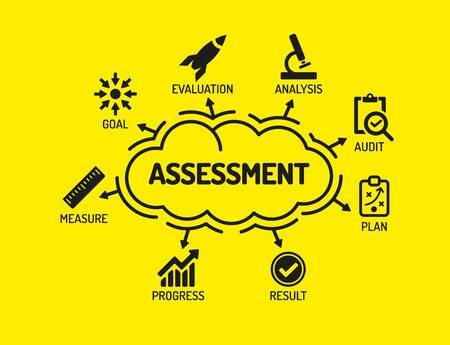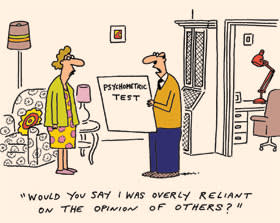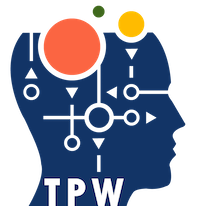Psychometric testing refers to the science of measurement of cognitive abilities and behavioral processes. It is an amalgamation of psychology and statistics and is a quantitative way of assessment and evaluation, with emphasis on administration and analysis of results.
Psychometric tests have made their way into the world in such a manner that they are now irreplaceable. It is used for various purposes. The most common industries it is used in are areas of business, education, and the academic world.

It is used during recruitment and selection, to understand training needs and check the usefulness of training given, for career counselling, by academicians to study various subjects, and much more. Psychometric tools are used in organizational planning as well. For example, promotion to leadership roles, building teams, etc. Another area psychometric tools are used is during performance appraisal. Dimensions such as organizational citizenship behavior, perceived stress of an employee, job satisfaction, etc can be tested. Psychometrics, thus, is especially important for those associated with Human Resource functions in an organization. Due to the predictive nature of psychometric evaluation, it can also aid in HR Analytics, an upcoming field in Human Resource Management. Currently, many top companies in India use psychometric tools for assessment. Some of them are Ford Motor, Hewlett Packard, Proctor & Gamble, Deloitte, and Citigroup.

Why is psychometrics gaining popularity over traditional methods of assessment like interviews? Well, the list of advantages is long. First, psychometric tests are time efficient. They can be rolled out to groups of people, conducted through the internet with e-versions of the test, and the results can be analysed much quicker as well. Second, it is cost effective as well. The tool, once developed, can be used again. Since, lower human interaction is required, the organisation saves money on human labour. Next, psychometric tests can help figure out dimensions of a person that are difficult to gauge in an interview. An example can be cultural fitment, which analyses if a certain candidate can integrate in the organisation’s culture. A well-constructed psychometric tool can counter faking as well. For example, the test Minnesota Multiphasic Personality Inventory has a scale that can detect faking and give the tester the corrected scores. Furthermore, such means of measurement reduce the margin of error that can be caused due to human bias. It is a standardised method of testing intangible aspects of an individual.

The way forward
The unavailability of data is a big concern while creating psychometric tests. The current trend of data availability, however, can change that. There are several studies that combine to hint at the possibility of using big data to mold psychometrics. For example, a 2019 study by Mazza et. al. found that Machine Learning techniques are extremely valuable and reach high performance in detecting fakers in self-report personality questionnaires. Online services and ubiquitous computational devices, such as smartphones and modern cars, record our everyday activity. The resulting Big Data offers unprecedented opportunities for tracking and analyzing behavior (Markowetz, et. al., 2014). Thus, opportunities psychometrics present are far-reaching, and it is a form of assessment that is here to stay.
References
Markowetz, A, Błaszkiewicz, K, Montag, C, Switala, C, Schlaepfer, T.E. (2014). Psycho-Informatics: Big Data shaping modern psychometrics. Medical Hypotheses, Volume 82, Issue 4, P 405-411. https://doi.org/10.1016/j.mehy.2013.11.030.
Mazza, C., Monaro, M., Orrù, G., Burla, F., Colasanti, M., Ferracuti, S., & Roma, P. (2019). Introducing machine learning to detect personality faking-good in a male sample: a new model based on Minnesota multiphasic personality inventory-2 restructured form scales and reaction times. Frontiers in psychiatry, 10, 389.
Bailey, R. (2017). HR Applications of Psychometrics. In Psychometric Testing, B. Cripps (Ed.). https://doi.org/10.1002/9781119183020.ch7


Comments 2
Psychometrics involves the part of psychology that deals with ‘Individual differences’ and the topics that are usually studies under that are — theories and models of intelligence, theories and models of personality. If your interest is in using tests here is a comprehensive course that teaches necessary psychology as part of learning psychometrics. http://thepsychometricworld.com/training-and-certifications/psychometric-certification-iibp/ If your purpose is the learn the science of developing tests, then this course is worth http://thepsychometricworld.com/training-and-certifications/psychometric-test-development-certification/
I wish to study psychometrics but have not studied psychology as a subject. Could you please suggest how can I move forward.